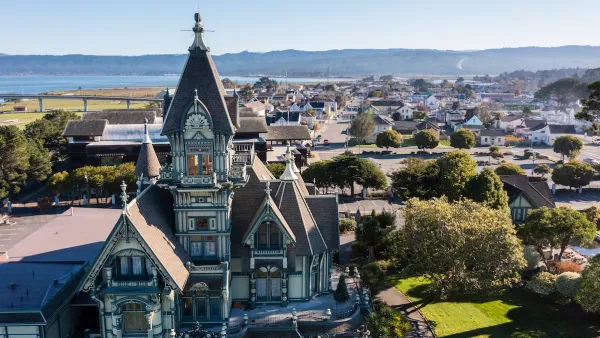New research seeks to learn how homes, neighborhoods, and communities affect how older residents are affected by climate change.

In a new paper published in Housing Policy Debate, Jennifer Molinsky and Ann Forsyth assess the influence of environmental factors on older adults’ vulnerability to climate change. This research is important because older adults are at “greater immediate risk” due to the higher likelihood of having mobility limitations, respiratory illnesses, or other risk factors, the authors explain.
The paper focuses on communities, neighborhoods, and homes as three nested but distinct spaces where climate risks can be mitigated or exacerbated in various ways. “For example, while the risk of severe storms, floods, or extreme heat differ by region, they can also vary locally by neighborhood, block, or house. A low-income renter may have little control over temperature or air quality in their building, creating greater exposure and sensitivity to heat, cold, or smoke entering the home through poorly sealed windows.” Meanwhile, residents of high-rise buildings may become stranded during an extreme weather event if elevators stop working. At the community scale, rural areas with few health facilities may predispose residents to worse health outcomes.
The authors note that more research is needed into the intersection of aging, climate change, and homes and neighborhoods, and the economic and demographic differences that impact how and where older people live.
FULL STORY: The Homes and Neighborhoods of Older Adults Shape Their Vulnerability to Climate Change

Analysis: Cybertruck Fatality Rate Far Exceeds That of Ford Pinto
The Tesla Cybertruck was recalled seven times last year.

National Parks Layoffs Will Cause Communities to Lose Billions
Thousands of essential park workers were laid off this week, just before the busy spring break season.

Retro-silient?: America’s First “Eco-burb,” The Woodlands Turns 50
A master-planned community north of Houston offers lessons on green infrastructure and resilient design, but falls short of its founder’s lofty affordability and walkability goals.

Test News Post 1
This is a summary

Analysis: Cybertruck Fatality Rate Far Exceeds That of Ford Pinto
The Tesla Cybertruck was recalled seven times last year.

Test News Headline 46
Test for the image on the front page.
Urban Design for Planners 1: Software Tools
This six-course series explores essential urban design concepts using open source software and equips planners with the tools they need to participate fully in the urban design process.
Planning for Universal Design
Learn the tools for implementing Universal Design in planning regulations.
EMC Planning Group, Inc.
Planetizen
Planetizen
Mpact (formerly Rail~Volution)
Great Falls Development Authority, Inc.
HUDs Office of Policy Development and Research
NYU Wagner Graduate School of Public Service




























